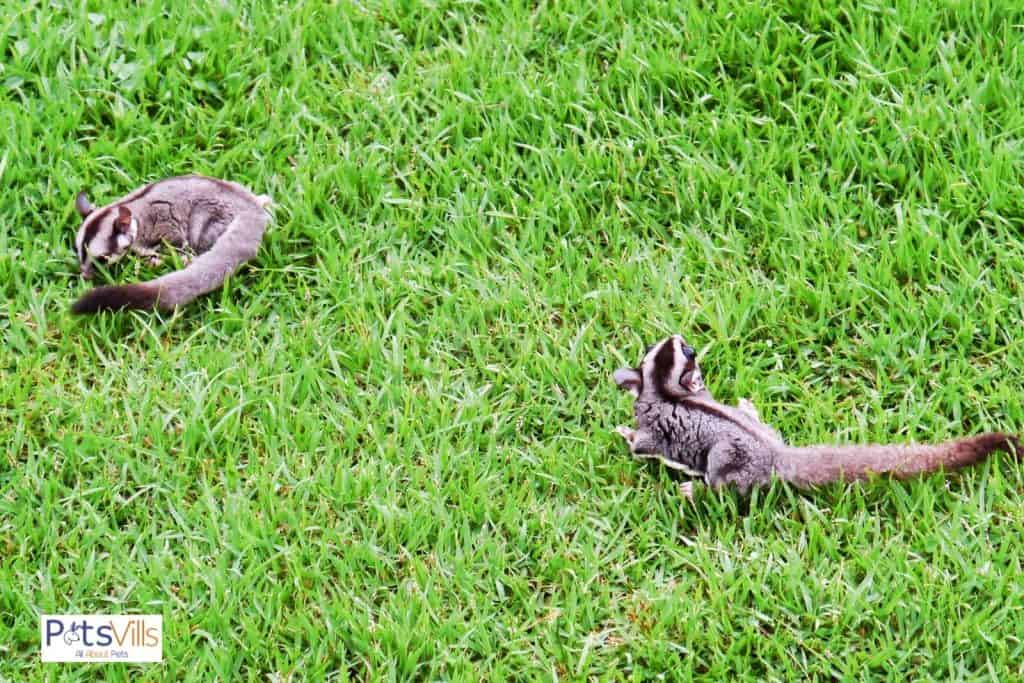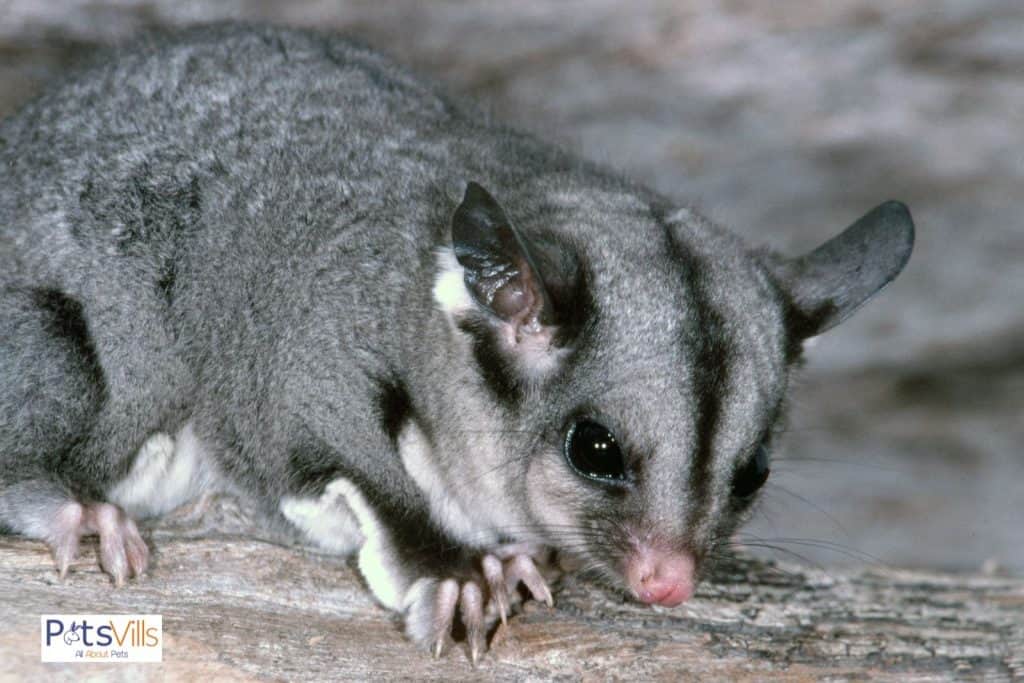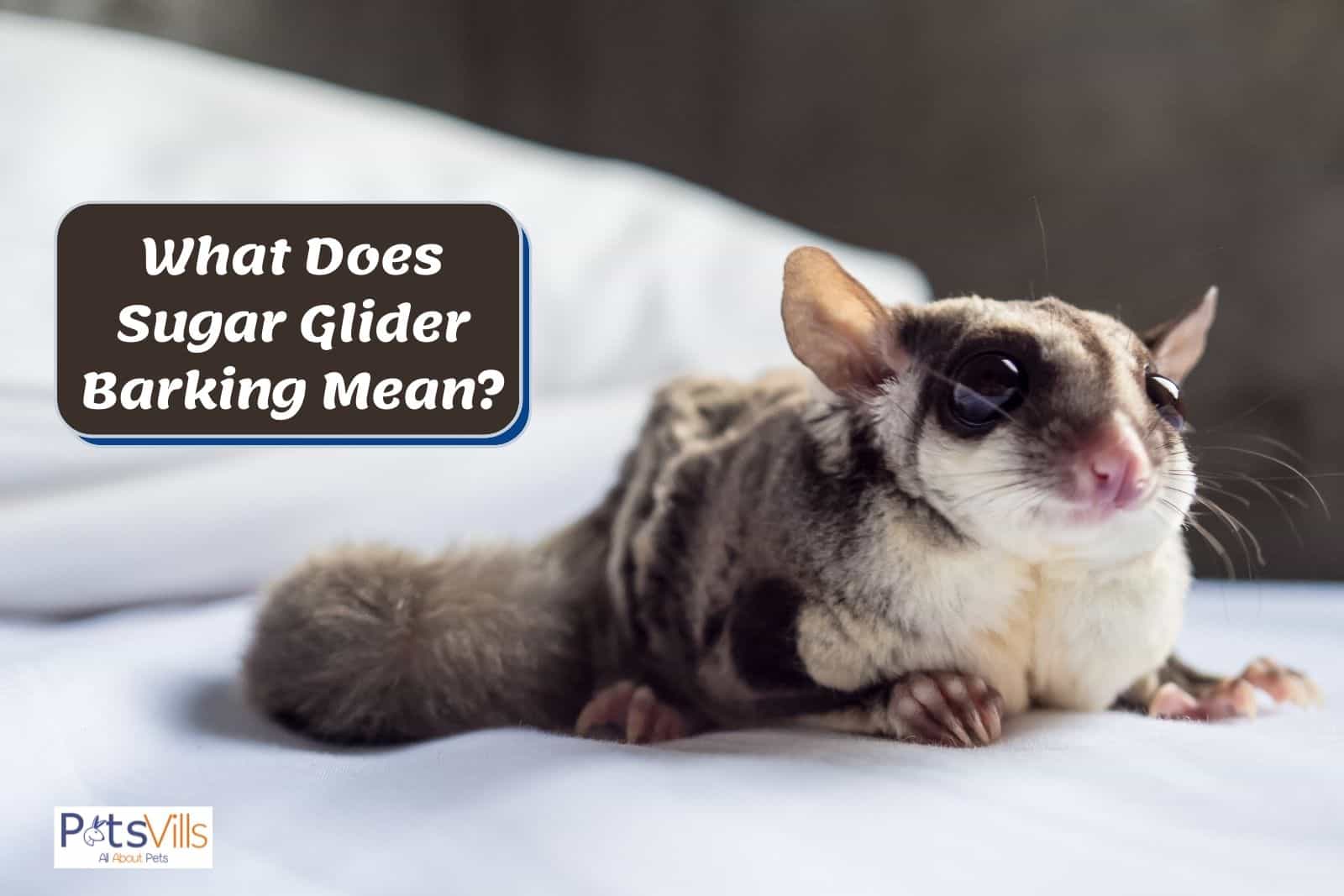A sugar glider barking is like a dog barking; it’s one of their ways of communication. You just need to consider a visit to the vet if your sugar bears emulate chronic barking.
Is your sugar glider barking and you’re not entirely sure what’s causing this nuisance? If you’re a new sugar glider owner and you’re just learning the ropes of it, you’re just in the right guide!
Don’t worry, I won’t just be babbling about the reasons why your sugar glider is barking. But I will also walk you through things like what it sounds like –even the steps to get rid of it!
READ MORE: Sugar Glider Scent Glands and Smell
Table of Contents
What Do Sugar Glider Barks Sound Like?
It can be alarming to hear sugar glider noises, especially if you are a new sugar glider owner. And if you’re not familiar with them, you could find it confusing to identify what it sounds like.
A sugar glider barking is akin to how a newborn puppy barks, similar to that of a squeeze toy. Others sound like a Chihuahua–you get the point. Yes, your canines and sugar gliders share the same sounds. But do they bark in the same circumstances?
Check this video to hear how it sounds like:
Other Sugar Glider Noises
If you thought that it’s just barking, think again! Other common sounds they could emulate include hissing, purring, and scraping. So, what do these other types of sounds mean?
Hissing

Our friends hiss like a snake, too. And when they do, it’s their way of communicating with other sugar gliders they get a sight of. Depending on the intensity and duration of the hiss, it could be a greeting to other gliders, saying “Hello, how are you?” or even “Out of my way.”
ALSO CHECK: Why Do Sugar Gliders Bite?
Purring
Purring is another sound that our cute little friends make and don’t put much thought into it. Just like cats, their purrs mean that they’re relaxed and they’re having the best time of their lives! Their purrs aren’t as loud as cats’, though.
Crabbing
Don’t be surprised when you hear a high-pitched noise in the middle of the night; it’s probably just your pet gliders crabbing. Other than sugar glider barking sounds, crabbing noises are also common with them. This noise is usually the sound they release when they’re not comfortable or not happy.
Out of all these noises, barking is the most common and that’s the reason why many owners are concerned with it. So, what do these barks mean, and more importantly, how do we stop them?
Why is My Sugar Glider Barking?
Just like dogs, a sugar glider barking could mean many things, too. They’re social animals that love interacting with their kind and others. Other than communicating with other sugar gliders, what other reasons could their barks mean?
They’re Disturbed or Shocked
Dogs bark when they experience something they didn’t expect; it’s the same with our pet gliders, too! When they hear something unfamiliar, like the voice of some visitor, breaking glass, and even loud television, they could bark to tell you that they know what’s going on.
FUN FACT: When they’re close to a window, try moving them away from it. The sound of cars and people passing by could be new to them, triggering the sound they’re making.
They’re Hungry

Other times, they could bark and let you know that you haven’t fed them yet. This usually happens out of nowhere or especially when you’re just playing with them. It’s always a good idea to give them food during the schedule you’ve set for bottle time.
FUN FACT: Our furry friends’ favorite food include fruits such as papaya, mango, blackberries, and raspberries.
They’re Sick or Lonely
If you hear them bark, but with less energy, it could simply mean they’re sick. Barking accompanied by chewed off nails and white film on their eyes is an indication that they need medical attention.
A low-energy bark could also mean that they’re lonely and need company. This puts them at the risk of developing sugar glider depression. Try to get them company by getting them a cage mate.
They Want Attention

Of course, who doesn’t want attention? With a physique as cute and as fluffy as them, they’d expect that you play with them all day. Most of the time, barking is just a sign that they’re longing for attention, so, be sure to give them that.
No Reason at All
It may sound like a no-brainer, but sugar glider aggressive behavior could actually be a random sound they’re making all to themselves. Barking is a natural sound that our furry friends emulate, and sometimes, it can actually be just something they want to do. They could just be giving a loud internal monologue that they should keep to themselves.
How Do I Stop My Sugar Gliders From Barking?
While barking isn’t always a cause for concern, there are instances where their barks mean something.
You could induce a couple of remedies to it. These remedies are in line with the reasons why they’re barking. So, doing the following things will help you try to stop them from barking:
- Feed them. They could just be yearning for a snack; try giving them their favorite food.
- Play with them. They’re social animals and they need interaction to run their lives.
- Get them a companion. They could be missing their family or any of their own kind. If you have a female sugar glider, get a male, and vice versa.
- Check on them. They could be telling you something (they’re sick, they don’t feel good, etc.)
- Keep them at a safe location. If there are other people/animals around, they could be frightened.
Barking is normal, so don’t stress yourself out too much about it. Try to group it in normal circumstances that they’re just trying to socialize.
But, when should I be worried, though? When do I know that a trip to the vet is what they need? Are there signs that I need to take note of?
Take a look at this video for additional tips:
How Do I Know if a Vet is What They Need?
You now know that our pet sugar gliders’ barks are normal and it’s not something that should drag us to the vet. But, when you notice that the barking is chronic and nonstop, take a moment and check.
Here are a couple of pointers you want to note before deciding to go to the vet:
- Check if they’re having a nasal discharge
- Try feeding them and see if their appetites are lower
- Check rashes/itchiness on the body
- Examine the body for unusual lumps and bumps
Any of this partnered up with a screeching sound of barking, the most ideal choice is to visit the vet.
FAQs on Sugar Glider Barking
Being a new sugar glider owner is similar to being a new dog owner. And to help you with it even further, here are some of the top questions asked in relation to the collective behavior and noise sugar gliders make.
Why Do Sugar Gliders Bark At Night?

Both male and female sugar gliders are nocturnal. This means they function more at night compared to what they are during the day. Over time, though, they’ll learn to adjust to your schedule and will refrain from bugging you at night.
Do Sugar Gliders Scream?
Yes, they can scream, especially if they’re in a situation that they’re not very comfortable in. When the types of sounds they’re emulating are new to you or if they seem alarming, attend to them and consider taking them to the vet.
Are Sugar Gliders Noisy at Night?
Yes, since they’re nocturnal creatures, they tend to be more active at night. It’s their way of communicating, especially if they’re alone. Don’t worry, you’ll get over the “fever” of being a new sugar glider owner after a few days of interacting with them.
Why Do Sugar Gliders Crab?

Our social animals don’t have a lot in their arsenal to tell us everything. The crabbing sound they make is often used in the wild and is for fighting or straying predators away from them. In captivity, though, the crabbing sound could mean that they’re frightened and that they don’t feel safe.
How Do I Avoid Sugar Glider Depression?
Signs of sugar glider depression and stress are real and it’s something recognizable. The most common signs that you have a depressed sugar glider would be if they mutilate themselves if they’re starving on purpose, if they’re barking uncontrollably, or if they’re developing weird sleeping patterns.
Final Verdict
If you find your sugar glider barking and you’re alarmed about it, don’t be! Our guide is solid proof that barking isn’t always necessarily bad. Do take note, though, of other things accompanied by the barking.
Sometimes, they could be health signals, telling you that the trip to the vet is long due. The majority of the time, though, they’re just looking for a companion or someone to spend their time with.
References:
- 1. Sugar Glider Noises and Sounds -and what they mean [Internet]. Available from: http://asgv.org/pdf/noises%202.pdf
- 2. Meaning Behind Your Sugar Glider’s Noises [Internet]. Exotic Nutrition. 2020 [cited 2021 Dec 2]. Available from: https://www.exoticnutrition.com/meaning-behind-sugar-glider-noises.aspx
- 3. Food and Diet – SUGAR GLIDER INFORMATION [Internet]. Nhsugargliders.com. 2013 [cited 2021 Dec 2]. Available from: http://nhsugargliders.com/estore/glider-information/food-and-diet.html

Have you heard your sugar glider barking? Let us know in the comments below!
Barry Stingmore is a British content writer living in Fuerteventura, Spain. An animal lover at heart, he shares his home with a dog and four rescue cats and has a passion for writing about animals big and small.
Barry loves finding answers to your animal-related questions, the more research involved the better! You can rely on him to find the facts.
Find him on FACEBOOK, TWITTER AND Linkedin
Read his latest ARTICLES.
Find more about him HERE.




![Cute Sugar Glider Drinking From The Bottle [Must-Watch Video]](https://petsvills.com/wp-content/uploads/2022/09/Cute-Sugar-Glider-Drinking-From-The-Bottle-Must-Watch-Video-211x150.jpg)
